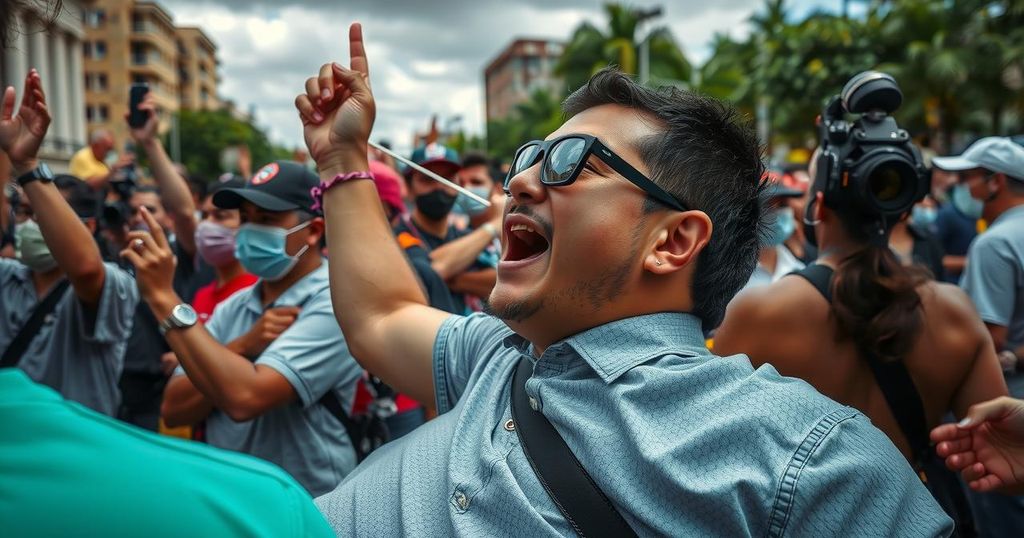Venezuela announced the release of an additional 177 protesters following the disputed elections in July, bringing the total number of releases to 910. Amid previous reports of violence, including deaths of detainees, the situation has raised concerns among human rights groups. With the backdrop of international scrutiny, these moves appear to be aimed at alleviating pressure and improving diplomatic relations ahead of significant political transitions both domestically and in the US.
Venezuela has announced the release of an additional 177 election protesters, bringing the total number of freed individuals to 910, amid ongoing political unrest following a disputed election. The Attorney General Tarek Saab reported this release on Monday, stating that over 2,000 demonstrators had been imprisoned in the aftermath of clashes following the controversial July 28 vote, in which President Nicolas Maduro declared victory without presenting official vote tallies. Rights groups, however, have raised concerns about the accuracy of these figures, highlighting that at least three protesters have reportedly died in custody since the unrest began.
As Venezuelans expressed their discontent with the absence of electoral transparency, clashes with security forces led to significant violence, resulting in 28 fatalities and hundreds of arrests. Currently, the rights group Foro Penal has indicated that there are still 1,877 political prisoners in the country. Prior to this recent announcement, various measures had been taken to facilitate the release of protesters, including a December 12 statement indicating that Maduro had ordered a review of cases related to election-related violence.
Moreover, amid scrutiny from international organizations, including the International Criminal Court, the government continues to face pressure regarding its treatment of political dissenters. The backdrop of these releases coincides with President Maduro’s upcoming inauguration for a third term on January 10, which raises questions about the Venezuelan administration’s intentions toward the incoming US government. The political landscape remains precarious, with previous sanctions on Venezuela expected to be reassessed under President-elect Donald Trump.
The atmosphere surrounding these releases suggests an attempt to mitigate criticisms from both local and international observers, particularly as many opposition figures have fled the country and the plight of detained US citizens remains a pressing concern. The recent developments indicate a complex interplay of domestic unrest and international diplomatic considerations.
In Venezuela, the political climate has been tumultuous following the controversial elections that took place on July 28, where President Nicolas Maduro declared himself the victor amidst widespread accusations of electoral fraud. Following these elections, significant protests erupted across the nation, leading to violent clashes with security forces. The government has detained thousands of demonstrators, triggering concerns from human rights organizations regarding the treatment of these political prisoners. The political landscape is further complicated by international scrutiny, with organizations like the International Criminal Court investigating the Maduro administration’s responses to dissent. With the upcoming swearing-in of Maduro for a third term and significant changes in the US administration, political dynamics in Venezuela are poised for critical developments.
In summary, Venezuela’s recent release of 177 election protesters forms part of a broader narrative of political unrest and government responses to dissent following a disputed election. While the government asserts its commitment to transparency and reform, rights groups remain skeptical and highlight ongoing issues such as the treatment of political prisoners and the violent suppression of protests. Moreover, the timing of these releases appears strategically aligned with both domestic political considerations and international pressures, particularly as the Biden administration prepares for a reassessment of relations with Venezuela. The evolution of this situation will be crucial in shaping Venezuela’s political future and human rights landscape.
Original Source: www.aljazeera.com






